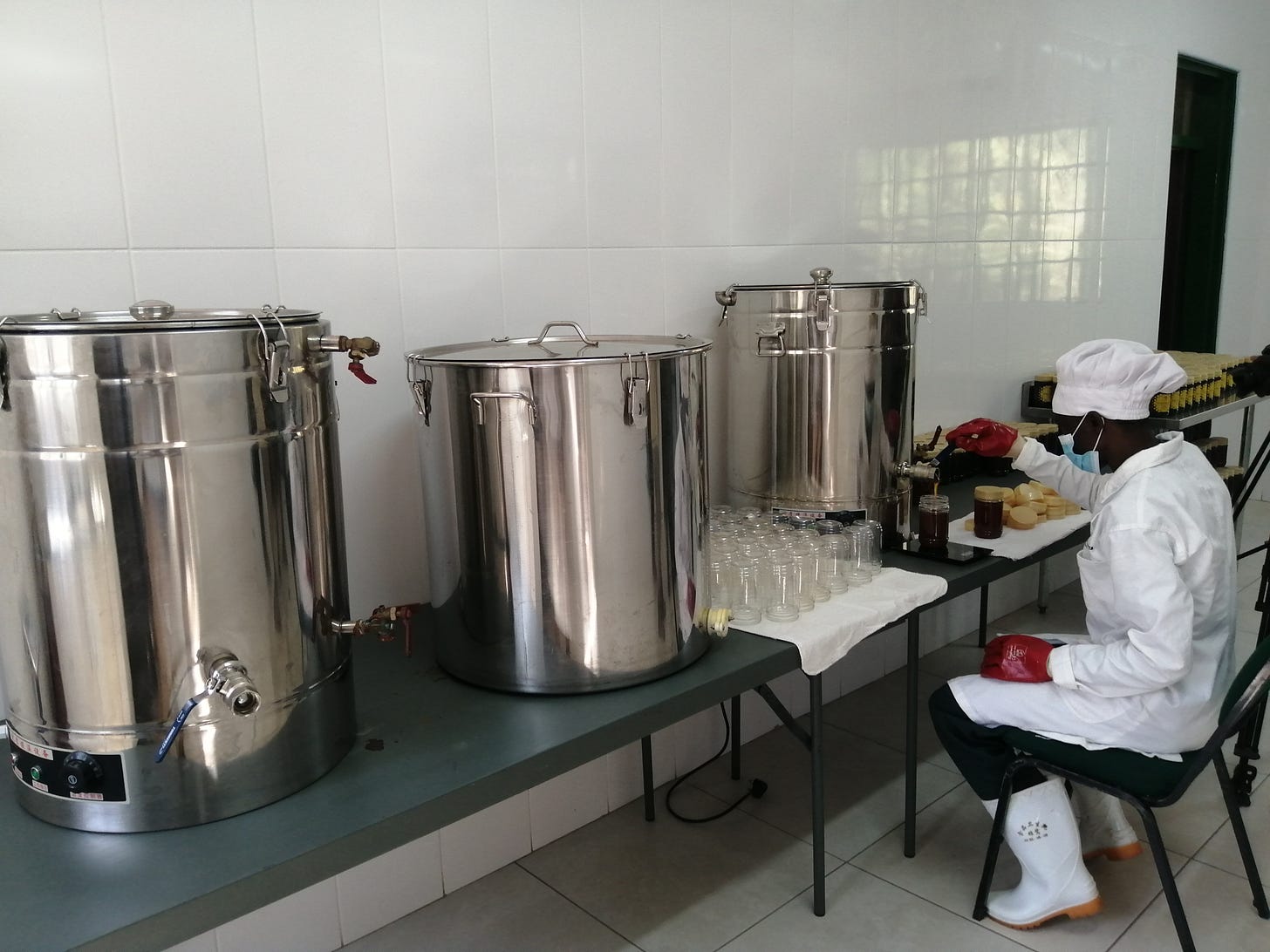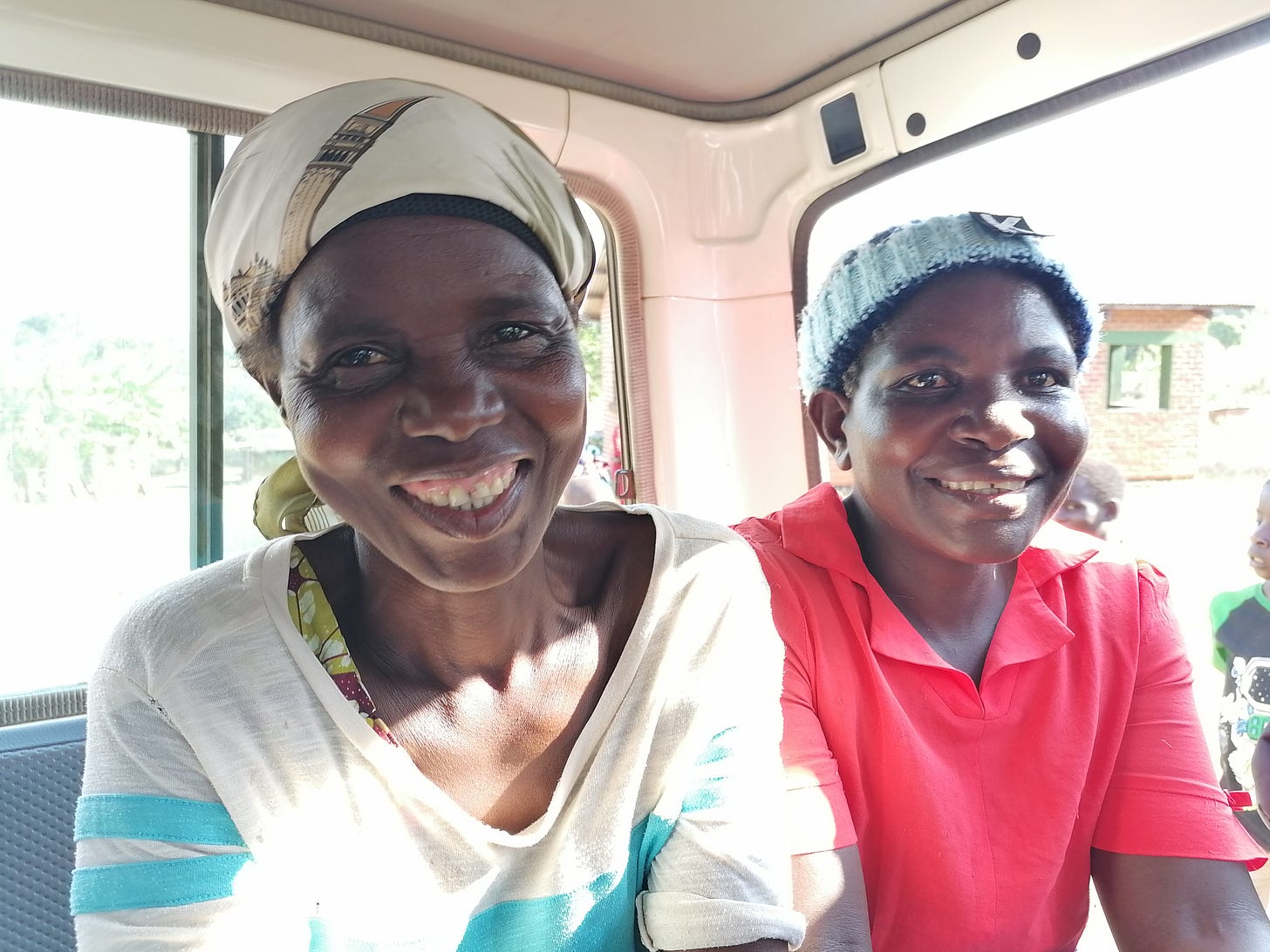FEATURES - Honey with heart changing people lives
Twenty years after taking over Majete Wildlife Reserve, African Parks, Honey with Heart programme is improving surrounding villages and changing lives. But only when people conserve trees.

Majete Wildlife Reserve is a vast ecosystem that has supported diverse wildlife species for decades as a tourism hotspot and provided various services to humanity. These include perennial water supply through rivers that feed the Shire and catchment protection that has prevented erosion and sedimentation in so many rivers.
However, one major threat to its existence twenty years ago was habitat degradation of Brachystegiawoodlands after poaching had decimated key wildlife species in a 700 sq kilometers protected areas declared in 1955. It was a major target for illegal biomass harvest to feed the demand for wood energy in the commercial city of Blantyre which shares boundary with the reserve.
“We did not know there were hidden treasure and benefits when you have living trees in both the reserve and outside. This resulted in surrounding communities to engage in unsustainable practices such as charcoal burning, cutting down of trees and others also were even debarking live trees,” acknowledges Cecilia Fikisadi, a member of Namitsempha Bee – keeping Cooperative in Group Village Headman Njolomole, Traditional Authority Kanduku in Mwanza district.
It all began with wide scale sensitization to the villages done by African Parks community extension unit which now has staff on the ground in surrounding villages. The extension team strengthen and expanded local structures including community-based organizations. They finally oriented them to realise that there are also potential income generating activities from natural resources if well managed.
“Bee – keeping is one of such viable ventures bringing us money in our homes through honey sales, after harvesting three times annually,” explains Fikisadi during a visit to the area.
Fikisadi acknowledges efforts that have been invested on the ground in form of infrastructure development such as clinics, skill training investment to young people, scholarships grant to both secondary and university students and provision of internship programmes to those that have finished their education living within five kilometers radius of Majete Wildlife Reserve.
“Bee – keeping is one of many projects being implemented along the peripheral of the reserve. It is changing lives of the local communities here. The good thing is that it is not only male folks that are involved. We as women are also taking part as a livelihood’s initiative,” an uplifted Fikisadi said in an interview.
Another member of the cooperative shares her story, “Since embarking on Bee – keeping, I have managed to plaster my house and also paid school fees for my son at Futsa Community Day Secondary School who is now going into form 2. All this is coming from Bee – keeping and the sales we make to African Parks,” a happily smiling Mary Thauzeni narrates.
As testimony to our great work in apiculture, our efforts say Thauzeni have also been recognized by the Agriculture Commercialization Programme (AGCOM), a programme being implemented by the Ministry of Agriculture.
AGCOM is a Malawian Government flagship programme for transforming smallholder agriculture from mostly subsistence to commercial. The programmes identifies cooperatives in rural areas supports them by providing the necessary finances and link together producer organizations, service providers including research and extension and off-takers in a value chain, in a concept popularly known as a productive alliance.
Thauzeni explains they also have received skills training and business management plans lessons thanks to the partnership with AGCOM.
“Namitsempha cooperative has already received mentorships from both African Parks community extension staff has also benefitted in skills and training as a cooperative from AGCOM,” says Thauzeni during our conversation at the cooperative premises in traditional authority Kanduku’s area some 20 kilometers north of the reserve.

In turn the cooperative that manage individual apiaries have increased their hives as they now have a combination of Langstroth hives (also called “Langs”) which consist of boxes stacked one on top of another.
According to available online literature, the hive begins as 1 or 2 boxes and more are added as the colony grows.
Wooden frames hang vertically inside the boxes and are usually filled with wax foundations to encourage bees to colonise the hives inside the frames. The most common size of Langstroth holds ten frames.
Mary Thamusani, another female bee-keeper and wife to the Chief is also another beneficiary. She narrates that one of her children has completed Form 4, thanks to the support she is getting from honey sales.
“I am getting a lot of revenue from honey sales as a livelihood’s initiative. During the last harvest, I was able to amass MK99,500.00. I used that money to buy household utensils such as pots, plates and some bags of cement. On the other hand, my husband was able to amass about MK110,000.00 as his personal revenue from honey sales,” says Thamusani in an interview.
As you can see now says Thamusani, as women we are empowered to be able to stand on our own. In the past, we used to rely on our husbands’ revenue for everything at home. “However, this means more self-reliance among women as part of economic empowerment to do things independently from the gender perspective,” She voices it out with confidence.
Dixie Makwale, African Parks Community Extension Manager at Majete says Honey with Heart provides beekeeping equipment and training to rural communities and then purchases the honey produced by the communities in the various epicentres, at fair trade prices, in order to improve the livelihoods of participating communities. Honey With Heart is also responsible for the sales and marketing of the products after packaging and value addition.
The epicentre are sites that have been developed and are located around the reserve. They have a clinic, school, community food processing and storage site, library, village bank and community hall.
“African Parks provide technical services and management skills on the ground, facilitate the activities through the established community extension programme, and provide expertise about the local context, “explains Makwale adding worries of delayed payment for honey sales only occurs as honey has to be collected in bulk from all areas and taken to the main office for payment process. He assured the beekeepers they will always get their money in time.
As the community engage in environment friendly activities in partnership with park authorities, they are slowly realising the existence of the reserve is to their benefit. They now realise that they have a role to play in conservation efforts so that they continue to reap the benefits.
Since setting up of the extension program in 2012 Bee – keeping was practiced by nineteen community-based organizations which were set up deliberately as conduits for extension and development programs with surrounding villages.
In 2019 Honey with Heart was set up as a brand to improve apiculture as alternative farming using modern hives that delivers harvest in bulk, finding markets for honey, but also securing Malawi Bureau of Standard certification as part of quality standard attainment.
The article first appeared in Malawi News Edition of August 26 - September 1, 2023

